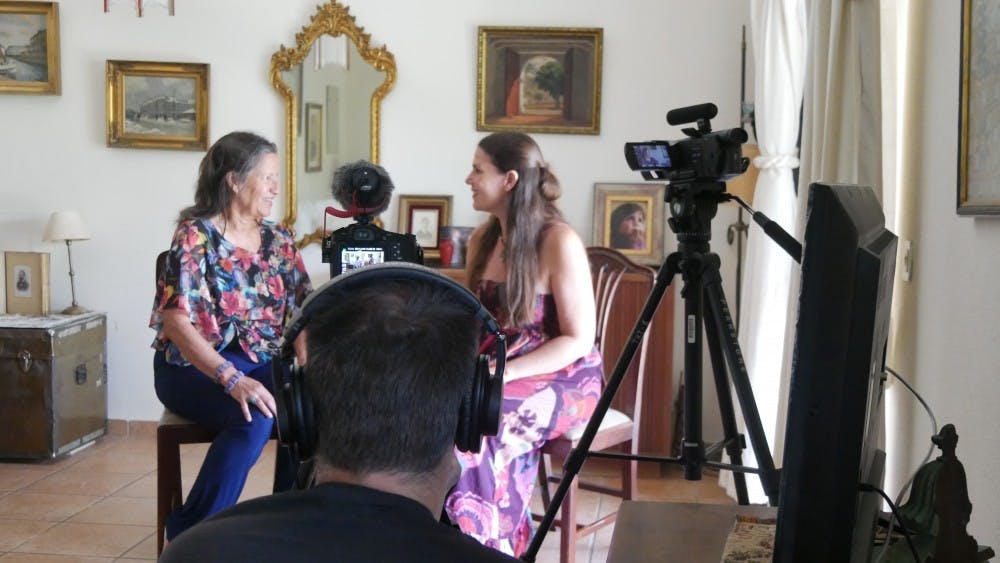With limited roles in media, the Latinx population in the U.S. is disproportionately sexualized — a notion that has significant consequences for the film industry and for Latinas in particular.
MSU College of Arts and Letters assistant professor and award-winning filmmaker Alexandra Hidalgo noted the differences between media representation in Latin American countries and the U.S.
In her home country of Venezuela, there's a "broad variety of representation" of Latinx people on the screen, she said. When she moved to the U.S. at 16, she soon realized Latinas in American media were pigeonholed into a few specific — and harmful — roles.
"I grew up with a way of seeing Latinas in a great variety of depths and experiences," Hidalgo said. "When I moved here, I was shocked. We hardly ever showed up, and when we did show up, we were often maids. If we weren't maids, we were often objects of sexual desire."
As a teenager, seeing those who looked like her portrayed as sultry women with no regard for their partners' dreams made Hidalgo question her value and "the options you have as a human in this society," she said.
"What is expected of you? What avenues are open to you?" she said. "It hurts everybody for us to not be able to understand the value of all its citizens in our country, the potential that they bring to us."
A USC Annenberg School for Cultural Communication and Journalism study found only about 3 percent of roles in the top-100 grossing movies each year from 2007 to 2016 were taken by Latinx actors. Of those, about one-quarter found the actor dressing in "sexy attire" or showing some form of nudity.
The stereotype of the "hot Latina" in American media "makes me feel the way I am is not the way I should be," civil engineering sophomore Areli Cardenas said. The portrayal sets an unfair standard for what the rest of society expects a Latina to look and act like — and worse yet, risks socializing young Latinas to buy into the stereotypes for social acceptance.
"It makes me nervous. It makes me feel not confident when I see myself portrayed in media," Cardenas said. "We grow up thinking of these stereotypes, of these norms we must follow. It takes your confidence as a woman."
Drawing on her experience as a filmmaker, Hidalgo said "it's a pity" that Latinas still aren't cast in roles that accurately portray their daily lives.
While a solution would be to simply involve more Latinas at every step of the filmmaking process from writing and directing to producing, the film industry isn't exactly open to such changes, she said.
"If you want to get a strong sense of what the Latina experience is — if you want to get a complex understanding ... you should have Latinas making films," Hidalgo said. "But it’s very hard for Latinas to get funded for their films, because they are seen as not having enough of an audience."
Aspiring Latina filmmakers face an uphill battle to achieve equality in an already difficult profession, but Hidalgo said progress can be made.
Her best advice for Latinas in the field is to share their stories. As a result, a "richer sense of storytelling" will develop, breaking stereotypes common in the non-Latinx media and allowing others to realize the broad range of life experiences Latinas have, she said.
Gaining the funding necessary to bring their experiences to light requires a lot of work, but Hidalgo — who has filmed and produced documentaries like "Teta" and "Vanishing Borders" — said through perseverance, Latina filmmakers can see a breakthrough.
"Filmmaking is hard — it isn't an easy undertaking," Hidalgo said. "If you work very hard, and you tell a story that comes from your heart, you will eventually find funding. It may not be from your first little movie, but if you stick with it, somebody will fund it and a lot of people will see it."
Cardenas said Latinas are no stranger to hard work, as being Latina on MSU's campus and being an ethnic minority in a white society "means work; it means responsibility; it means we are in constant battle against our own cultural beliefs."
But being Latina is also colorful and powerful; it is beautiful despite being a constant battle; and it means having closely held beliefs and honoring important traditions, she said.
By reflecting this complexity, perhaps the sexy stereotypes can end and make room for the ambition and self-determination that accurately describes Latinas like Cardenas.
"As a Latina right now at MSU, I’m trying to figure out who I want to be," Cardenas said. "I'm fighting for my future, as a woman I am fighting for me. ... I just want (people) to see that I am strong, and anything is possible."
Support student media!
Please consider donating to The State News and help fund the future of journalism.
Discussion
Share and discuss “MSU professor, student resist sexualization of Latinas in media ” on social media.







